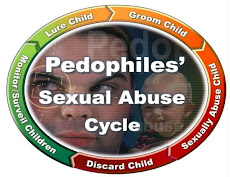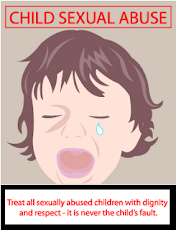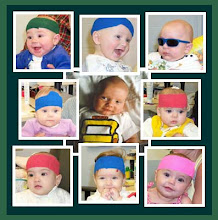LAW AND CHILDREN SEXUAL ABUSE
DR WIDODO JUDARWANTO
FIGHT CHILD SEXUAL ABUSE AND PEDOPHILIA
Yudhasmara Foundation
JL TAMAN BENDUNGAN ASAHAN 5 JAKARTA PUSAT, JAKARTA INDONESIA 10210
PHONE : (021) 70081995 – 5703646
email : judarwanto@gmail.com,
http://pedophiliasexabuse.blogspot.com/
.
.
PROBLEMS WITH PREVIOUS LAWS
Prior to 1988, laws governing child sexual abuse did not reflect the reality of the situation. Some of the problems were as follows:
- Gender bias - many offenses were only applicable to female victims and male offenders. The reality is that there are many young boys out there who are sexually abused, and they were not protected.
- Limited range of sexual activity - many offenses only covered vaginal intercourse, and this did not encompass the many different types of sexual molestation, such as touching or fondling. Invitation was not an offence.
- Requirements of previous chaste character - girls who had some previous (consensual) sexual experiences were not considered "of chaste character" and were not protected. A victim's sexual reputation could be used as a defence.
- Time restrictions - the offence had to be prosecuted within a year of the offence. Many victims take many years to gather up the courage to report their victimization.
CURRENT CHILD SEXUAL ABUSE LAWS
In 1988, changes were made to the Criminal Code in an effort to combat some of the above listed problems. As child sexual abuse does not always involve intercourse, changes were made to the law to include other sexual behaviour.
The following is a summary of the laws governing child sexual abuse in Canada:
Sexual interference
This section makes it an offence to touch a child under 14 years of age. The touching can be directly or indirectly, and can be with a body part or an object. The touching must be for a sexual purpose. The maximum punishment for this offence is 10 years.
Invitation to sexual touching
This section makes it an offence to invite, council or incite a child under 14 years of age to touch another for a sexual purpose. This touching can be direct or indirect, with a part of the body or an object. The maximum punishment for this offence is 10 years.
Sexual exploitation
This section makes it an affiance for an adult, in a position of trust or authority over a child, to invite sexual touching of a child between the ages of 14 and 18. This section is aimed specifically at individuals such as teachers, sports coaches or councilors. The maximum punishment for sexual exploitation is five years.
Incest
This section makes it an affiance to have sexual intercourse with a blood relation. A blood relation is defined as parent, brother, sister, grandparent, grandchild, half-brother and half-sister. To be convicted of this affiance, the offender must have had sexual intercourse (vaginal penetration) with an individual that was known to be a blood relative.
Sexual assault
This section is not aimed specifically at children. This is the legal term for 'rape'. In Canada we have three 'degrees' of sexual assault - sexual assault, sexual assault with a weapon, threats to a third part or causing bodily harm and aggravated sexual assault. Sexual assault is the intentional application of force, directly or indirectly, to another without their consent for sexual purposes. This section can include behavior such as unwanted touching, forcing an individual to touch another, assaults with a weapon, threatening to harm a third party, wounding an individual in the course of a sexual assault or endangering the life of an individual during the course of a sexual assault.
Parole Conditions
Anyone convicted of a sexual affiance involving children can be prohibited from frequenting daycare canter, school grounds, playgrounds, community centres, public parks or bathing areas where children are likely to be found. They are also prohibited from seeking or obtaining employment that involves a position of trust or authority over children. This ban can be up to a lifetime ban. The decision is made by the court whether or not there will be a ban and how long it will be. The maximum sentence is 2 years in prison.
Peace Bonds
Anyone can get Peace Bond against someone, this individual does not need to have a previous conviction, who they have a fear based on "reasonable grounds" will commit a sexual offence
against someone under 14 years of age. The child or children do not have to be named, and the Bond can be imposed for up to 1 year.
CONSENT ISSUES
Consent is not an issue for children under 12 years of age. They cannot legally give their consent for any sexual act. Children aged 12 can only give their consent if their partner is less then 2 years older then they are. An accused cannot use the defence of consent if that person is in a position of trust or authority over the child. It is not a defence to this crime for the accused to say that he did not know the child's age. He/she must have taken all reasonable steps to ascertain the correct age.
For children who are legally able to consent to sexual activities, the accused is required to have taken reasonable steps to ascertain the victim's consent. Consent cannot be assumed based on the victim's silence.
Many argue that the age of consent is too low. A 14 year old should not have to deal with the issue of consent if he or she had been sexually assaulted. Fourteen is too young to be having sexual relations with adults.
CHILDREN AS WITNESSES
There is much concern in the criminal justice system surrounding the testimony of young people. Many people have serious concerns about allowing children to testify, especially in sexual abuse/assault cases. One of the concerns is that children cannot tell the difference between truth and fantasy, and that the abuse may be a fantasy. Another concern is that children will lie to get back at a parent or someone else. This relates to the belief that many parents coach children to lie, such as in the case of a custody dispute.
Children often find it very difficult to testify in open courtrooms. It is not difficult to imagine that children would be very nervous and intimidated in a courtroom atmosphere and setting. This kind of testimony is often embarrassing for children to talk about in private, let alone to disclose to a courtroom full of strangers.
Children also have troubles with specifics, such as dates, and this can lead to problems in the laying of charges. Defence lawyers really press the witness for a specific period of time. The Crown prosecutor can help by asking the child if the abuse happened around Christmas time, or
close to some other significant event in the child's life. It may be hard to defend oneself if the victim cannot give you specifics.
Children may be afraid of retaliation from the accused since threats are often a part of the accused's attempts to keep the abuse a secret. A support person or relative can be permitted to sit near the child while he/she is testifying. Sometimes booster seats are used, children are permitted to bring in a toy or blanket, and props such as dolls and drawings can be used to assist the child.
Judges must be satisfied that a young victim sufficiently understands that he/she must tell the truth, and that the child knows the difference between the truth and a lie, and right and wrong. For example, the judge may ask the child to explain in their own words what a lie is. Instead of taking an oath to tell the truth, young children may just have to promise to tell the truth. For a witness who is under 14 years of age, a judge must conduct an inquiry into the child's ability to give sworn testimony.
A report by the Ontario Law Reform Commission says that, "children are as trustworthy as adults when they testify in court." The report looked at studies done over the past twenty years. It says that "many of our legal rules are based on the fact that children don't have these capabilities (to testify). It's time to revise these archaic rules."
USE OF SCREENS/VIDEOTAPE
Children under 18 years of age can be permitted to testify behind a screen or through a video display setup outside the courtroom. The judge must first be convinced such an arrangement would be necessary to obtain a full account of the child's evidence. The accused and his/her lawyer must be permitted to hear the evidence and make answer to it. Screens are much more likely than closed circuit televisions, but some people feel that televisions are better because the jury would infer that the child is afraid of the courtroom and not necessarily the accused. The legalities of the use of screens and videos has been questioned, but as one court put it,
"The right to face one's accusers is not in this day and age to be taken in the literal sense...(it is) simply the right of an accused person to hear the case against him and to make answer and defence to it..."
The reality is that screens and closed circuit televisions are used in few cases. One reason for this is that few courtrooms have access to screens or televisions.
For cases where the accused has chosen to represent him/herself, a judge is permitted to appoint a counsel for the sole purpose of cross-examining the child victim since it could be very traumatic or intimidating for the accused to cross-examine the child.
Young victims can also be videotaped in advance of the trial, and this tape can then be played at the trial. However, the child will still have to take the stand to "adopt the contents of the videotape," or to testify that what is contained on the tape is the truth. The child may have to be cross-examined also since the defence must be able to answer the charges.
The rules governing the use of these types of tapes are very strict to ensure they have not been edited in any way. For example, a clock must be visible to the camera at all times to prove that the tape was not stopped or paused for any reason. Tapes must be made as soon as possible after the abuse has been reported.
RECENT COMPLAINT
In the past it was a requirement by law that a complaint of sexual abuse must be reported within one year of the offence. Now that the realities of sexual abuse have come to light, and we realize that it often takes years for people to build up the courage to report such abuse, the law has been changed. There is no longer a requirement that the complaint be recent. The credibility of the complaint should not be affected by the time it took to make the charge. However, as is often the case, the law is different from reality. The reality of it is that many victims are still questioned in court about why they didn't tell someone sooner so the abuse would stop. In this way, it is no surprise that many victims feel worse after reporting because of the treatment they receive on cross-examination.
Cases where there has been a delay in reporting are often difficult to prosecute. Judges often have difficulty convicting in such cases. The following remarks made by a judge involving a sexual abuse case, where the man had already pleaded guilty, really emphasize that the problem of recent complaint still exist,
"I have difficulty accepting that the plaintiff would sit and say nothing for 20 minutes and 15 minutes respectively while the accused did what she said he did to her, and never bring the subject up for nine years."
The judge then acquitted the man in spite of the fact that the accused had admitted guilt.
CORROBORATION
The law has also been changed with respect to corroboration. It used to be that a person could not be convicted of a sexual offence unless there was some kind of corroborating evidence to back up the child's testimony. This is no longer the case. An accused can be convicted on the evidence of the child alone. This does not mean that the court has to convict on that evidence, only that it has the option to do so. The prosecution still must prove the case beyond a reasonable doubt, so it is important to gather as much evidence as possible.
Most cases of sexual abuse are committed in a private setting where only the offender and the victim are present. Since many cases are not reported right away, there may be little physical evidence. Cases involving no other evidence than the child's testimony are difficult to prove, and often result in an acquittal. The fact that the child has information of a sexual nature in which he/she should not have is a good indicator that they are telling the truth. Many judges still comment on the risks of convicting an accused solely on the child's testimony. Therefore, the fact that corroboration is no longer required is good, it does not solve all of the problems of getting more convictions.
PAST SEXUAL HISTORY
The rules governing the admissibility of past sexual history evidence were made more strict in 1992. For young children, this is probably not even an issue, but for older kids, it may be. The relevancy of any such evidence is decided upon by a judge. Basically, this kind of evidence is not admissible. Reputation evidence is also not admissible. The introduction of evidence of past sexual history for the purpose of portraying the victim as more likely to consent or less worthy of belief is not permitted.
PUBLICATION BANS
A victim of a sexual offence, or any child victim can have a publication ban put in place to prevent the release of their identity. For cases where the release of the accused person's name may indicate the identity of the child victims, a ban can be placed on that of the accused person as well. The publication ban is the decision of the child or his/her parents. It is not automatic. The judge may also remove the public from the courtroom if the child so desires.
.jpg)









.png)

Tidak ada komentar:
Posting Komentar